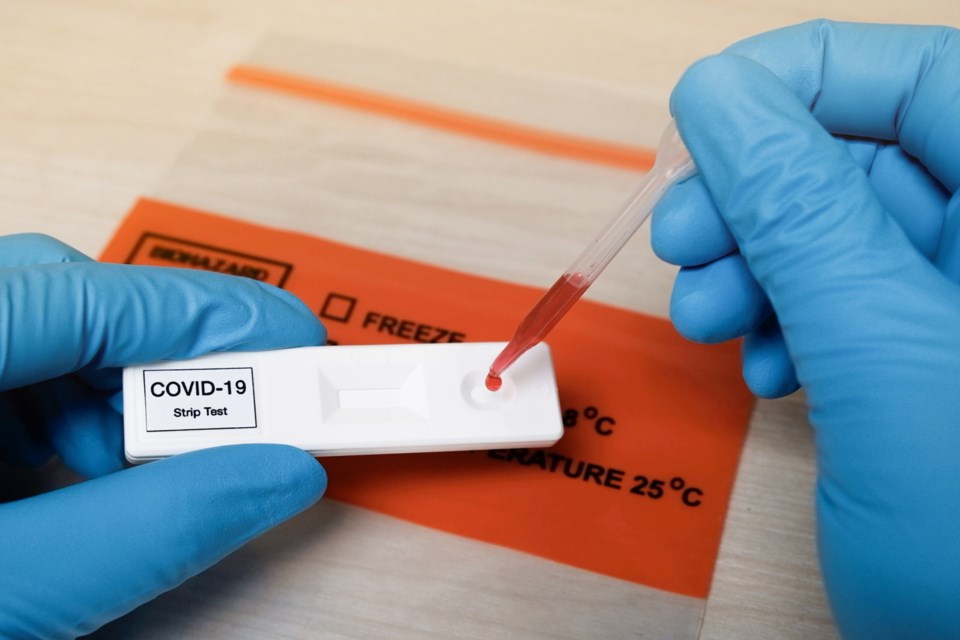With the threat from the Delta variant rising across Waterloo region, public health will be offering voluntary rapid antigen screening tests to schools in high-risk situations "where they may be of added value," the region’s chief medical officer of health said.
During Friday's media briefing, Dr. Hsiu-Li Wang said the test kits will be sent to schools in situations where testing of student cohorts could help prevent whole school closures, or as an additional screening tool for schools after a closure.
Rapid antigen tests in schools, also known as “the test to stay strategy,” will roll out when public health is concerned about the level of spread in what would otherwise be a full-school closure.
“This will be applied when we are seeing cases or outbreaks in multiple cohorts or classes that are not linked,” Wang said.
The screening tool will be offered to asymptomatic and unvaccinated children who are not high risk contacts to help identify cases in other cohorts in the school that have not yet had a case.
Wang said 60 per cent participation of unvaccinated students in these other cohorts, and in some cases the entire school, will be required.
A second scenario where the rapid antigen testing will be deployed is as an additional screening tool upon a school reopening following a whole-school closure.
For a period of time after a school reopens, the test will be offered to asymptomatic and unvaccinated children who are not high risk contacts.
When the tests are offered in any particular school, Region of Waterloo Public Health says it will notify school administrators their school has met the criteria for testing, provide the school with an information letter to distribute to parents, and provide the the kits and accompanying instructions to be distributed to families.
Schools will then notify families through email that the voluntary tests are being made available.
As the days grow colder and everyone is spending more time indoors, Wang urged people to continue to deploy the “Swiss cheese model of protection.”
“We need to assume that we can come into contact with COVID-19 at any time,” she said.
While vaccination remains the strongest layer of protection, she said people need to continue to practice public health precautions, including masking, physical distancing, limiting social contacts and limiting exposure when indoors by sticking to well-ventilated areas.
Over the last week, case rates have doubled across the region and most of those cases continue to be among those who are unvaccinated, she added.
“As normally follows a rise in cases, we are starting to see more outbreaks in high risk settings,” Wang said, warning “we are likely to see a rise in hospitalizations and ICU admissions in the coming weeks.”
The weekly case rate is now at 31 per 100,000, while the region is managing 207 active cases and 12 outbreaks.
“The large majority of health units are now seeing an increase in case rates,” Wang said.
While she's not heard the term "fifth wave" yet, Wang said the rise in cases across the province is concerning, adding she supports the government's decision to pause its plan to lift capacity restrictions.
"Our situation is delicate and it can change quickly if we let our guards down."



